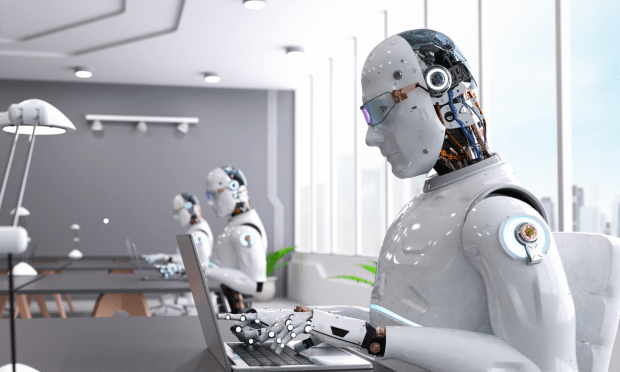Technology is advancing at an unprecedented pace, and artificial intelligence (AI) is gradually becoming an integral part of our daily lives. While AI has brought about numerous benefits, it also poses a threat to certain job roles. In this article, we explore the future of work and identify five jobs ai will replace.
As AI continues to learn and adapt, it is gradually taking over repetitive and mundane tasks, allowing humans to focus on higher-level responsibilities. One such job that AI is set to replace is customer service representatives. With the development of chatbots and virtual assistants, companies are increasingly turning to AI to handle customer inquiries and support.
Another job that AI is expected to replace is truck driving. Autonomous vehicles are on the rise, and major companies like Tesla and Google are investing heavily in self-driving technology. As a result, truck drivers may soon find themselves out of work.
Additionally, AI is set to impact the healthcare industry, with radiologists being one of the most affected. AI-powered algorithms are proving to be highly accurate in diagnosing diseases, potentially making radiologists’ expertise obsolete.
The future of work is undoubtedly changing, and it’s crucial for professionals to anticipate these shifts and adapt accordingly.

Good to Great
by Jim Collins
⏱ 16 minutes reading time
🎧 Audio version available
How AI is transforming industries
AI is revolutionizing industries across the board, from retail to healthcare. With its ability to analyze data, learn from patterns, and make predictions, AI is streamlining processes and improving efficiency. As a result, certain job roles are becoming increasingly redundant. Let’s delve into some specific jobs that are at risk of being replaced by AI.
Job 1: Customer service representatives
As AI continues to learn and adapt, it is gradually taking over repetitive and mundane tasks, allowing humans to focus on higher-level responsibilities. One such job that AI is set to replace is customer service representatives. With the development of chatbots and virtual assistants, companies are increasingly turning to AI to handle customer inquiries and support.
Chatbots are becoming more sophisticated and are capable of understanding natural language, providing personalized responses, and resolving customer issues. They can be available 24/7, ensuring round-the-clock support for customers. This not only saves companies time and money but also enhances the overall customer experience.
However, while AI can handle routine inquiries, there will always be a need for human interaction in more complex situations that require empathy, creativity, and critical thinking. Therefore, customer service representatives can focus on building relationships, resolving complex issues, and providing a personalized touch that AI cannot replicate.
Job 2: Data entry and administrative tasks
Another job that AI is expected to replace is data entry and administrative tasks. AI-powered software can efficiently process and analyze large volumes of data, eliminating the need for manual data entry. This not only reduces the risk of human error but also frees up valuable time for employees to focus on more strategic and value-added tasks.
AI-powered virtual assistants, like Siri and Alexa, can also handle administrative tasks such as scheduling appointments, setting reminders, and organizing emails. This not only saves time but also increases productivity and allows employees to concentrate on tasks that require human intelligence and creativity.
While AI can automate routine administrative tasks, humans will still be needed for critical decision-making, problem-solving, and managing complex projects that require a deep understanding of business objectives.
Job 3: Warehouse workers and delivery drivers
The rise of AI and automation is also impacting the logistics and transportation industry. Warehouses and distribution centers are increasingly adopting AI-powered robotics to handle tasks such as inventory management, order picking, and packing. These robots are faster, more accurate, and can work around the clock without breaks, making them highly efficient compared to human workers.
Similarly, the advent of autonomous vehicles is poised to disrupt the job of truck drivers. Major companies like Tesla and Google are investing heavily in self-driving technology, and it’s only a matter of time before autonomous trucks become a common sight on the roads. While this may result in job loss for truck drivers, it also opens up new opportunities in managing and maintaining autonomous vehicle fleets.
Job 4: Financial and investment advisors
The financial industry is not immune to the impact of AI either. Financial and investment advisors may see their roles diminished as AI-powered algorithms become more sophisticated in analyzing market trends, making investment recommendations, and managing portfolios. These algorithms can process vast amounts of data, identify patterns, and make predictions with a high degree of accuracy.
However, it’s important to note that while AI can provide valuable insights, human financial advisors bring a level of expertise and personalized guidance that AI cannot replicate. They can understand client goals, navigate complex financial situations, and provide emotional support during uncertain times. Therefore, the role of financial advisors will evolve to focus more on strategic planning, relationship building, and providing holistic financial advice.
Job 5: Manufacturing and assembly line workers
In the manufacturing industry, AI-powered robots and automation are transforming production processes. With advancements in robotics and machine learning, robots can now perform complex tasks that were once exclusive to humans. They can assemble products, operate machinery, and perform quality control checks with precision and speed.
This shift towards automation may lead to a decrease in the demand for manufacturing and assembly line workers. However, it’s important to note that new roles will also emerge in the field of robotics and automation, such as robot maintenance technicians and AI system operators. These roles will require a different skill set and present opportunities for upskilling and reskilling.
Related: From Good to Great: The Role of Incremental Innovations in Driving Success
Upskilling and reskilling for the future job market
As AI continues to reshape the job landscape, it’s crucial for professionals to adapt and acquire the skills that are in demand. Upskilling and reskilling will be essential to thrive in the future job market. This involves acquiring new skills, staying updated with the latest technological advancements, and embracing lifelong learning.
Professionals can focus on developing skills that complement AI, such as critical thinking, creativity, emotional intelligence, and complex problem-solving. These human skills are difficult to replicate and will be highly valued in the age of AI. Additionally, acquiring expertise in AI-related fields, such as machine learning and data science, can open up new career opportunities.
The importance of human skills in the age of AI
While AI has the potential to replace certain job roles, it’s important to remember that humans possess unique qualities that cannot be replicated by machines. Human skills, such as empathy, creativity, adaptability, and ethical decision-making, are crucial in many professions.
In fact, the future of work will likely see a shift towards more human-centric roles that require emotional intelligence and interpersonal skills. Jobs that involve creativity, innovation, and complex problem-solving will be in high demand. Therefore, professionals should focus on cultivating these skills to remain relevant and valuable in the job market.
Embracing the future of work with AI
The future of work is undoubtedly changing, and AI is playing a significant role in shaping it. While AI has the potential to replace certain job roles, it also creates new opportunities for innovation and growth. Professionals must be proactive in adapting to these changes and embracing the potential that AI brings.
Upskilling and reskilling will be essential to thrive in the future job market. By acquiring new skills, staying updated with technological advancements, and cultivating human skills, professionals can position themselves for success in the age of AI.
As AI continues to evolve, it’s crucial to strike a balance between the capabilities of AI and the unique strengths of humans. By leveraging AI as a tool and harnessing our human skills, we can create a future of work that embraces the best of both worlds. It’s time to embrace the future of work with AI and unlock the endless possibilities it presents.
What Is Snapreads?

With the Snapreads app, you get the key insights from the best nonfiction books in minutes, not hours or days. Our experts transform these books into quick, memorable, easy-to-understand insights you can read when you have the time or listen to them on the go.


